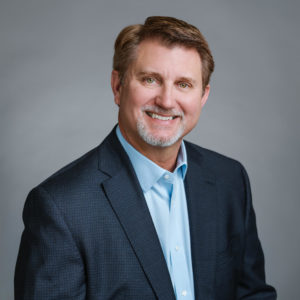Maintaining Oral Health in the Nursing Facility
| Maintaining Oral Health in the Nursing Facility Many residents these days maintain partial, if not full, dentition, and good oral care remains important BY LINDA LESLIE, RDH, AND KARLA GIRTS, BSDH, RDH |
| At birth, one of the first ministrations a newborn receives is an oral swab. A clean mouth is no less important for the elderly or other long-term care residents than it is for newborns-promoting oral health is important to maintaining general health even in old age. Quality of life suffers when oral disease is present because of the resulting pain, speech limitations, reduced sense of taste, increased chewing complications, low self-esteem, and reduced socialization. Moreover, the Surgeon General’s 2000 report on oral health in America noted that the development of systemic disease is strongly associated with an overabundance of bacteria and inflammation in the oral cavity. Chronic oral infections have been linked to diabetes, heart disease, respiratory pneumonia, and the general degradation of the immune system. |
| At present, MDS Sections K (Oral/Nutritional Status) and L (Oral/Dental Status) require an oral health assessment, including a decision on whether a resident is able to perform his/her own oral hygiene regimen without assistance. If not, a care plan must be developed to have it done by someone on the care team. Although trained to assist and/or monitor a resident’s oral hygiene and dedicated to providing good care, aides are not always comfortable with this service because a poorly kept mouth can be intimidating and, frankly, repulsive. Consequently, oral care, while being addressed, is not necessarily being provided correctly or confidently in the nursing home. Fortunately, practical assistance is available. By enlisting the services of a registered dental hygienist (RDH) as an oral health liaison (OHL), a facility can improve the outcomes from this very important health habit. The OHL’s Role These services can help make up for an important gap in third-party reimbursement. Medicare does not cover routine dental care, and coverage is optional for individual state Medicaid programs. In states where dental care is reimbursed, Medicaid covers the cost of an annual cleaning; unfortunately, the reimbursement is so low that many dentists don’t want to get involved. Some states do cover this service, however, when provided by an RDH. Although OHLs are not state-mandated throughout the country, a growing number of facilities are enlisting the services of these oral health practitioners, if not on staff, at least on a contract basis. Some hygienists provide services to a number of client facilities, which is an attractive alternative for facilities with budgetary concerns. Some even have offices set up inside their vans and carry dental equipment that would not be available at the facility. At in-services, an OHL can instruct staff on how to adapt dental care equipment (toothbrushes, flosses, interdental brushes, and the like) so it is easier for residents to care for themselves. An OHL’s first goal is to see that staff and residents are trained in the basics of daily mouth care and that they make it a routine standard of care. Beyond providing oral health education, OHLs are trained to recognize and address problems they discover during a dental hygiene examination. For example, if there is an infection or severe decay, an OHL will facilitate scheduling an appointment with a dentist or advise the nursing staff to do so. They can also expedite attention to dental emergencies, if necessary. Equipment Needed Treating the Elderly This applies to residents with dementia, as well. Although they might not comprehend explanations concerning the importance of good oral care, they shouldn’t be denied access to it. The most important thing to remember is not to traumatize the resident. If a resident with dementia becomes agitated and is uncooperative or resistant to the treatment, stop. Let the resident calm down and try again later; perhaps providing a small dose of antianxiety medication will help. The same adaptive approach applies to residents facing end-of-life issues. At this point, dental hygiene treatments are provided principally to maintain quality of life. They are an important element in the palliative care that is provided to help the dying resident maintain comfort and dignity for as long as possible. Conclusion |
| Linda Leslie, RDH, is Administrator and former President of the New Jersey Dental Hygienists’ Association. She is also in private practice. For more information, e-mail lesliex@bellatlantic.net, or visit www.njdha.org. Karla Girts, BSDH, RDH, has an Oregon Limited Access Permit, coordinated dental hygiene/dental care in a Portland-area extended care facility for seven years, and served as a consultant to other facilities. She is Past President of the American Dental Hygienists’ Association and can be reached at karlajgirts@comcast.com. To comment on this article, e-mail leslie0104@nursinghomesmagazine.com. |
Related Articles
Topics: Articles , Clinical











